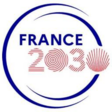eCAMPUS
electro-mobility for CAMPus of Universities based on Sustainability

The International Associate Laboratory (IAL) eCAMPUS was borned from a collaboration between the University of Lille and the University of Québec à Trois-Rivières (UQTR).

Objective
The objective of eCAMPUS is to develop methodologies for the research and implementation of electro-mobility in university campuses, pursuing a future development of eco-cities. A first example of this collaboration in the EVE project.
Members
Missions
The missions of eCAMPUS are divided into four research axes:
- Axis 1 – Hydrogen and electro-mobility for university campuses (coordinated by IRH): focuses on hydrogen storage of energy produced by renewable sources, and its implementation to power fuel cell vehicles.
- Axis 2 – Analysis of the mobility on university campuses (coordinated by LVC): focuses on a comparative study of the mobility on both campuses.
- Axis 3 – Analysis of the consumption of electric vehicles (coordinated by L2EP): focuses on the consumption of electric vehicles on both campuses, considering the differences on driving styles, climate and cites.
- Axis 4 – Electrification of the home-university mobility (coordinated by TVES): focuses on the study of different electrification scenarios for both campuses (e.g. urban development, possible partnerships, administrative procedures).













